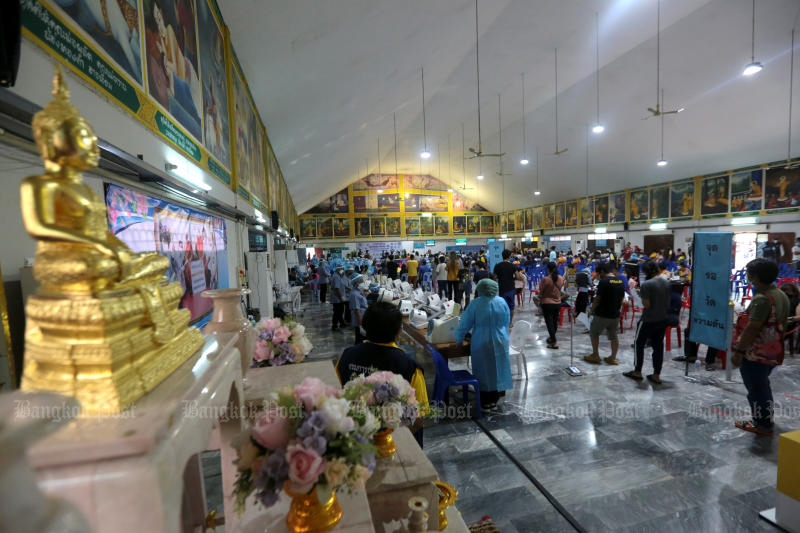
The Covid-19 taskforce has approved the use of the AstraZeneca vaccine as the second dose for people who received Sinovac as their first jab.
In making the decision, the Centre for Covid-19 Situation Administration (CCSA) was following the recommendation of the Ministry of Public Health for a vaccine-mixing approach, said Apisamai Srirangson, the CCSA assistant spokeswoman.
The ministry reached its conclusion after looking at studies carried out by other agencies including medical schools and “the results were satisfactory,” she said on Friday.
The second shot of AstraZeneca can be injected three or four weeks after the first jab of Sinovac, according to the CCSA. People can also take two shots of AstraZeneca as planned, it added.
The National Communicable Disease Committee chaired by Public Health Minister Anutin Charnvirakul on Monday proposed AstraZeneca as the second shot for people who had been given Chinese-made Sinovac in the first inoculation. The two-brand approach is believed to lead to better protection against infection or becoming seriously ill with Covid-19.
The policy shift left health personnel confused after Prime Minister Prayut Chan-o-cha said on Tuesday that he wanted a thorough study on the change.
Mr Anutin had said on Monday that the cross-formula vaccine would help people cope better with the Delta variant of the virus, which has been driving a relentless surge of new infections and deaths in the country.
Experts at the Department of Disease Control on Wednesday also fully supported the committee’s decision, citing the benefit of the combination of the two different vaccines.
Thiravat Hemachudha, director of the Centre for Emerging Infectious Diseases at Chulalongkorn University, argued on his Facebook account on Wednesday that AstraZeneca should also be used as a booster shot for people receiving two Sinavac jabs as it would create better immunity.
At least two doses of Sinovac should continue as they could lessen the severity of the crisis, although it was less effective against the Delta strain, he said.
“The solution to end the confusion is to tackle the problem at the root cause by sufficiently providing vaccines with better effectiveness for Thai people,” he wrote.
The country is still struggling to secure enough supplies of AstraZeneca as Siam Bioscience Co, the local contract manufacturer, has been unable to meet production targets. This has led to the postponement of scheduled AstraZenaca inoculations in several centres.
Deputy Public Health Minister Sathit Pitutecha said this week that AstraZeneca had proposed extending the deadline for delivering all 61 million doses ordered by the country from December to May next year.
The government said on Wednesday it was considering regulations to limit its vaccine exports from the country without specifying the name of the vaccine.
